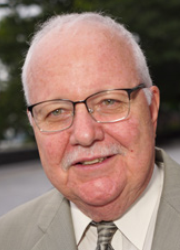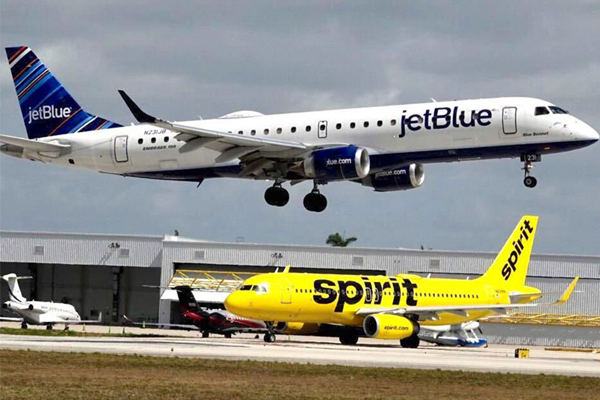New York, NY — On June 17, the state designated 911 and other dispatchers as First Responders for Communications. The legislation (A7366 Abbate/S7121 Brook), passed by the New York State Legislature in its just concluded 2021 session, finally confers First Responder status to 911 dispatchers in New York City, who are Local 1549 members, as well as others throughout the state who work police, fire, and EMS dispatch positions.

The bill was first proposed numerous years ago and supported by Local 1549 and DC 37 among other unions but was not acted upon. It was revived with new legislative sponsors thanks to the work of Local 1549. The original legislation focused on 911 dispatchers but later was revised to include other emergency agencies. The legislation received unanimous support in the state legislature and will be sent to the Governor to be signed into law.
LaborPress spoke to Ralph Palladino, 2nd Vice President for Local 1549, about the legislation and what it means for workers.
LP: When does this legislation go into effect?
RP: Immediately. As soon as the Governor signs it into law.
LP: How does it benefit members, what will change for them?
RP: As first responders in the NYC Police Department Communications Section and division these “first responders in Communications” will be recognized for the TRUE AND ONLY literal definition of First Responder (the first person to assist those seeking emergency assistance). They act as counselors – calming down callers to get information. During the September 11th Terrorist Attack they were in most cases the first and many times the last person that spoke to the victims of this horrific occurrence.
After 9/11, Super Storm Sandy, major snowstorms, the Blackout, the Pandemic and the rallies following the death of George Floyd, the 911 Operators and Dispatchers, Supervising Police Communications Technician (SPCT) and the Police Communication Technician (PCT) were mandated essential first responders who have not had time off and MUST work in incredibly stressful work environments and situations. Since the pandemic they have not stopped working. “They are the unsung heroes working an extremely important job,” said Alma Roper, Executive Vice President of Local 1549.
This law will change the status, recognition, and the ability of the Local to try to gain higher pay for these workers in collective bargaining.
LP: Will they get a pay raise?
RP: This bill provides no provisions for an increase in pay. What it does do if it becomes law is open the door for consideration and negotiation for increased pay for these essential first responders. Again, the status change leads to the discussion for negotiations with the City of New York.
LP: What kind of training do they have?
RP: These workers undergo extensive training. They undergo 8 weeks of exhaustive pinpoint focused training on codes and expansions. Currently, there are over 500 such codes and expansions they must memorize. For example, notifying the EMS, FDNY and NYPD of car accidents, injuries, cardiac arrest, police in need of assistance. During this rigorous training they take quizzes, mid-terms and a final and they also do hands on training during the 3rd or 4th week with an experienced Operator. Before the probation is over, they must be trained and certified for dispatch radio. Their probationary period is for 18 months.
LP: What are their duties?
RP: As a new PCT they undergo 8 weeks of training on over 500 codes and expansions, answer emergency calls and dispatch them to Police Officers, FDNY or EMS. They do 911 texting and transfer calls to FDNY, EMS or NYPD. They also do transit radio and Spanish line interpretation and other language line assistance. Their newly added duties are 911 texting.
LP: These workers have high rates of PTSD, up to 25%. How can this be compensated?
RP: We believe because of this there should be hazardous pay for these workers. Because of the stress of the job, high turnover rate and mandated work schedule we believe compensated pay and care should be afforded these workers. Such as being granted the necessary time and leave necessary to tend to their families, physical and mental well-being, sufficient days off, on the job services such as counseling, destressing stations (for meditation, decompressing, yoga, and exercise), time off on department time not their own and a more flexible schedule to reduce their mandated hours and to ensure healthy workers. These workers work on a 24-hour schedule, 7 days a week, 365 days a year and do numerous amounts of Overtime.
LP: Do you have any other thoughts about this legislation you would like to share with our readers?
RP: This law will benefit many women of color many of whom are single female heads of household who will finally get the recognition they have sought for many years. Thanks to the efforts of the leadership of the local, President Eddie Rodriquez, Executive VP Alma Roper (former SPCT) and District Council 37 its Parent, and the commitment of the legislators statewide, (especially the sponsors Peter Abbate, Senator Brooks and Bailey) who passed this bill unanimously in both houses of the Legislature (because they recognize the need for such a change in status), we are much closer to receiving this much deserved honor and change of status. The Operators/Dispatchers and Supervisors of the New York City Communications Section and Division are excited about the prospects of a signature from Governor Cuomo making this bill a law.



